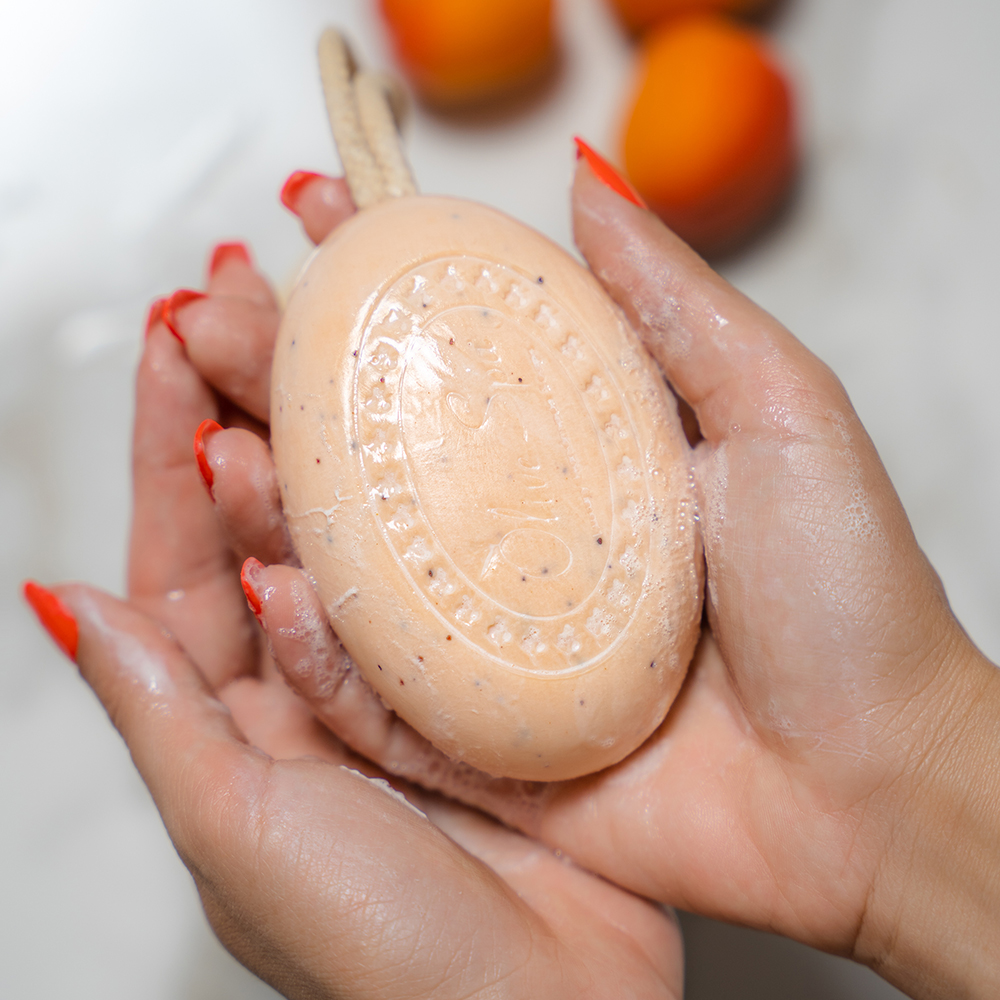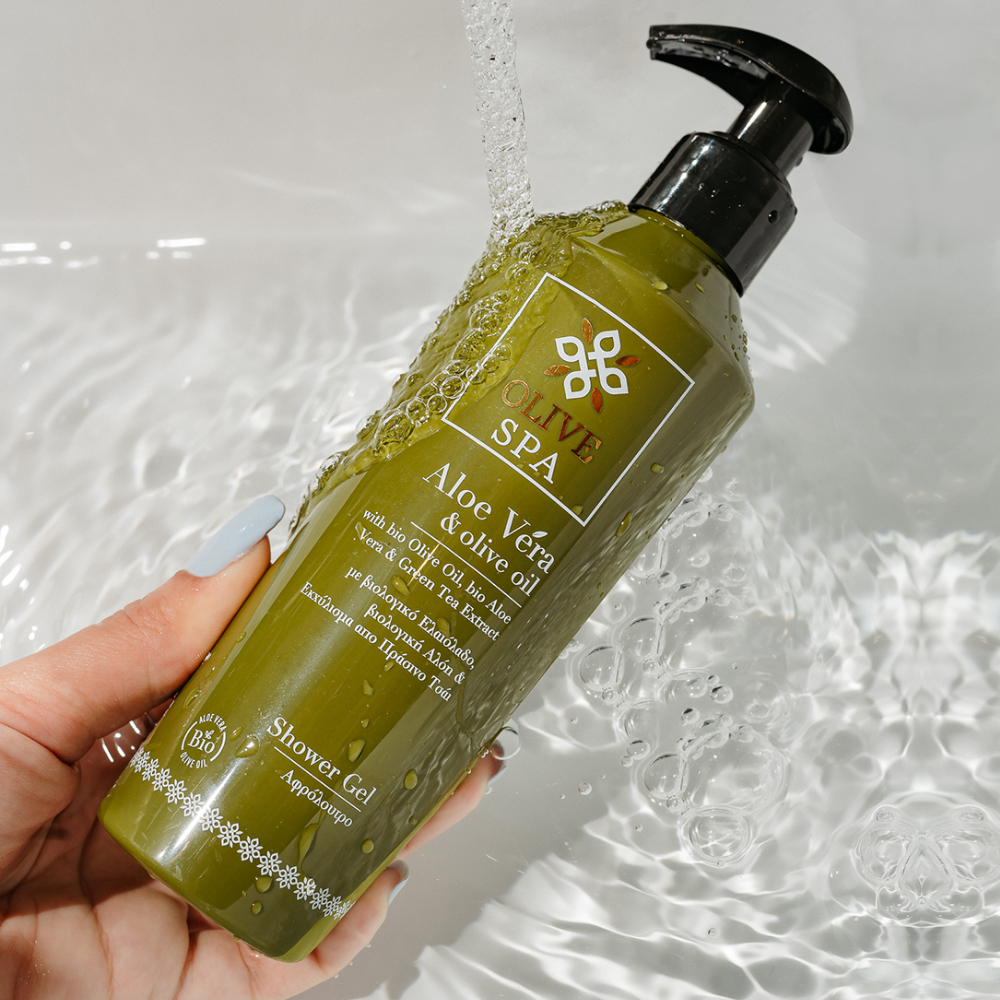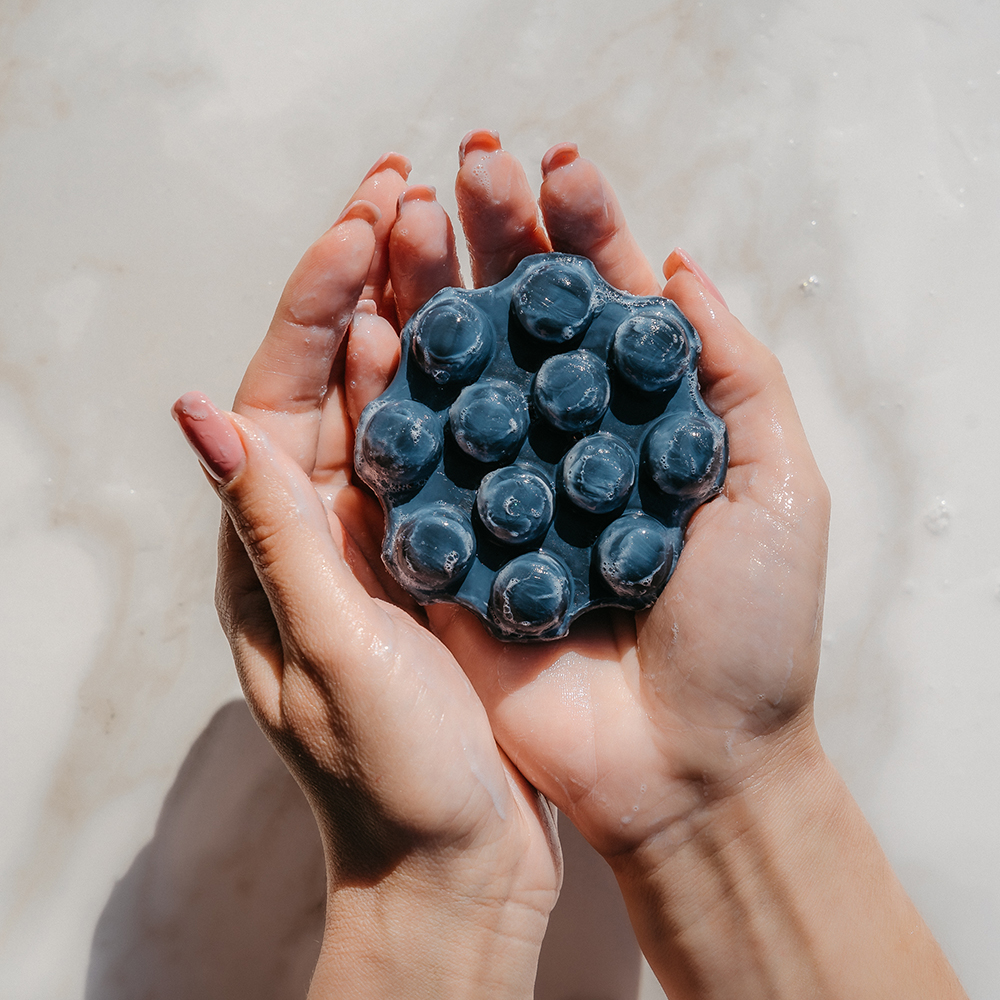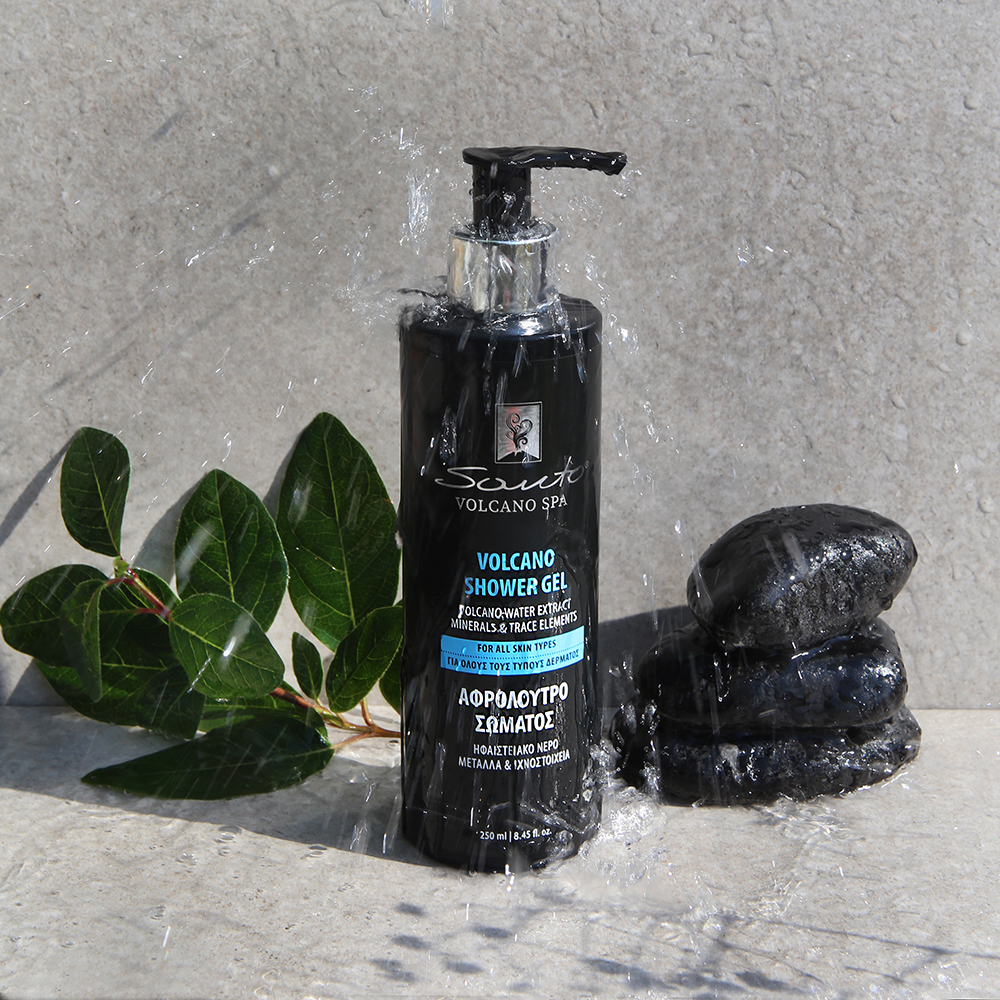Soap or Shower Gel?
Maybe you love the sensation of cleansing your body with the same smooth, scented bar soap you’ve used since you were a kid. Or maybe you can’t feel fully clean without lathering up with a loofah paired with shower gel. You’d think taking a shower would be a rather straightforward task. Here we’ll help you […]
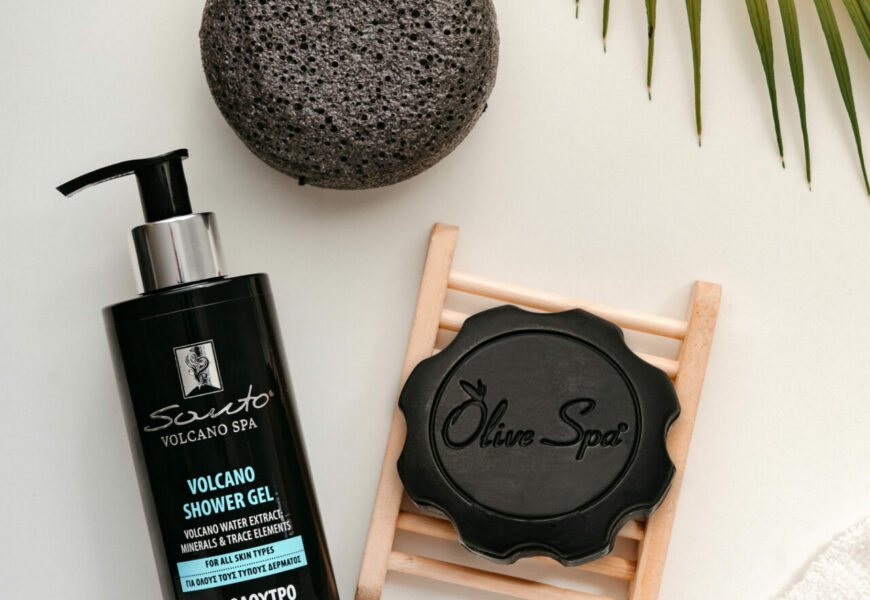
Maybe you love the sensation of cleansing your body with the same smooth, scented bar soap you’ve used since you were a kid. Or maybe you can’t feel fully clean without lathering up with a loofah paired with shower gel. You’d think taking a shower would be a rather straightforward task. Here we’ll help you find out which type of cleanser is the ideal one for your skin.
The main difference between a bar soap cleanser and a shower gel is the form they come in and how they interact with skin. Both types of products are cleansers and will cleanse, but each one of them has its advantages and disadvantages, depending on your skin type and condition, and the location you live.
Shower Gel
There are certain instances when shower gel is the best cleansing choice. As a liquid cleanser, it is typically made with emollients to soften the skin and mild surfactants that create a rich, foamy lather. If you have dry skin, it’s better to use a shower gel if you typically notice that your skin feels dry, stripped, or flaky after a shower.
When you need to exfoliate your skin, a shower gel will do the job, as the cleansing agents often contain natural or synthetic exfoliant ingredients. These can be found in bar soap, too, but they are often not as finely milled or ground down as they would be in a shower gel. It is recommended that you use a loofah, konjac, or sea sponge to apply and rinse the product off your skin. The use of these tools offers an additional level of exfoliation during your shower.
If you have a chronic skin condition like rosacea, psoriasis, or acne, you may want to speak to a dermatologist about the cleanser you use in the shower. Chances are, there is a shower gel recommended just for you. A dermatologist can also tell you ingredients to look out for and avoid when you shop for a body cleanser.
Bar Soap
For those with die-hard bar soap devotion, there are also times when bar soap is the clear winner.
For people with naturally oily skin types, living in hot and humid places, or people just looking for a very deep wash -like after a workout-, using a bar is a quick and easy way to get clean. However, certain bars may be harsh and can remove essential lipids and proteins, or alter the skin’s pH level, which can cause skin irritation.
Bar soaps tend to contain fewer ingredients than shower gels. They don’t typically need preservatives to keep them shelf-stable, which means they are typically free of parabens. It’s also easier to make bar soap hypoallergenic. There are plenty of herbal, all-natural bar soap options that are hypoallergenic. So, when you have certain allergies, choosing a bar soap would be a safe option.
The truth is that bar soap is a lot eco-friendlier than a shower gel. Bar soap tends to come packaged in a recyclable box, and once you’re done using it, there’s nothing left to throw away. Microbeads in body washes are also controversial (and, in some cases, completely banned) because of their impact on the environment. Bar soaps don’t typically contain these types of ingredients. So, when you’re concerned about the environment, the use of a bar soap would be the best choice.
Bear in mind, that liquid body washes tend in general to be slightly more hygienic than bars. That’s because bacteria can live on bars and remain on there from shower to shower and person to person. To avoid bacteria buildup, try not to share bar soap with other members of your household and make sure that you always rinse it between use and allow to drain and dry completely. With a liquid wash, it’s easier to avoid bacteria buildup since it doesn’t touch skin while in the bottle.
What ingredients to look for in soap or shower gel
Whatever type of soap you decide to use in the shower, there are some ingredients that should always throw up a red flag. There are also some common ingredients that make the cleansing effective, gentle, and moisturizing on your skin.
Glycerin is a plant-based cleanser that can seal moisture into your skin barrier without stripping your skin of oils.
Natural exfoliants, such as finely milled black walnut shells, coffee/poppy seeds, oatmeal, or ground apricot pits, can work to naturally remove dead skin cells.
Some essential oils like rose and lavender oil are popular in scented soaps. Moisturizing oils, such as coconut oil and sweet almond oil, have additional skin-softening properties. Shea butter and coconut butter are frequently found in certain hypoallergenic soap formulas and are safe and shelf-stable for people to use on skin.
In shower gels, seek out ingredients that are moisturizing, not just hydrating. Liquid washes that have ceramics, hyaluronic acid, and petrolatum tend to work well.
Ingredients to avoid
No matter which cleanser you use, avoid powerful antibacterial agents like triclosan in your bar soap. If you’ve had adverse reactions to soap in the past, you must always avoid parabens and phthalates. Parabens are chemical preservatives that are meant to preserve the shelf life of cosmetic products. There is some concern over whether parabens can be linked to certain health conditions, so avoid parabens whenever you can.
Your preference for shower gel or bar soap should depend on what your priorities are for cleansing. If you’re looking for something eco-friendly and sustainably made to cleanse dirt from your body, basic bar soap is your shower soulmate. If you need skin hydration, serious exfoliation, or acne treatment during your shower, a shower gel might be the better choice.
It is good to know that as you are getting older, your skin needs change too. While bar cleansers are fine for a younger audience, switching to a more moisturizing liquid wash that can build skin health over time is essential, as it will help your skin stay smoother, softer, and healthier for longer.
Sources
